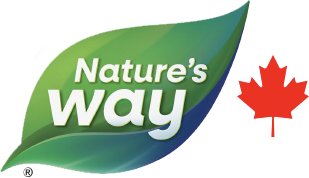Published on February 7, 2023
The importance of omega-3 in a plant-based diet.
Omega-3 fatty acids are essential nutrients that play a crucial role in human health. They have been shown to have anti-inflammatory effects[1],improve cardiovascular health, and support brain and eye development1,[2].There are three main types of omega-3 fatty acids: EPA (eicosapentaenoic acid), DHA (docosahexaenoic acid), and ALA (alpha-linolenic acid). EPA and DHA are found primarily in fatty fish, while ALA is found in plant-based sources.
Since vegetarians and vegans don’t consume marine products, they typically have lower levels of EPA and DHA compared to omnivores – up to 60% less in some cases[3].EPA and DHA in particular are recommended for the maintenance of good health and wellness. Common plant-based sources of omega-3s include:
- Flaxseeds: Flaxseeds are an excellent source of ALA and can be ground and added to smoothies, oatmeal, or baked goods.
- Chia seeds: Chia seeds are also a good source of ALA and like flaxseeds, can be added to smoothies, oatmeal, or baked goods.
- Walnuts: Walnuts are a good source of ALA and can be eaten as a snack or added to salads or baked goods.
- Soybeans: Soybeans are a good source of ALA and can be eaten as edamame, tofu, or soy milk.
- Brussels sprouts: Brussels sprouts are a good source of ALA, with a half cup providing about 0.3 grams. They can be roasted, steamed, or added to salads.
While it is possible to consume adequate amounts of ALA omega-3 fatty acids through plant-based sources, conversion to EPA and DHA is estimated to be only around 5% – meaning vegetarians and vegans need to consume higher amounts of ALA to get the same amount of EPA and DHA as omnivores [4][5]. As an alternative to plant-based sources of EPA and DHA, vegetarians may want to consider algae-based supplements, which are a direct source of EPA+DHA with no conversion required.[6]
NutraVege by Nature’s Way is one such supplement. It’s a plant-based omega-3 derived from sustainably cultivated micro-algae grown in a closed, monitored environment free from environmental or man-made contaminants, and an excellent source of EPA & DHA for vegans and vegetarians. Nutravege is available in both liquid and softgel formats, for adults and kids, in regular and Extra Strength formulas with up to 1000mg of EPA+DHA per serving – and even with vegan Vitamin D!
In conclusion, vegetarians and vegans can get sufficient amounts of omega-3 fatty acids by including plant-based sources in their diet. Algae-based supplements can also be a source of EPA and DHA for those following a plant-based diet. It is important to consult a healthcare professional or a registered dietitian to determine the right intake of omega-3 fatty acids for an individual based on their age, sex, and health status.
[1] Calder PC. Omega-3 fatty acids and inflammatory processes. Nutrients. 2010;2(3):355-374. doi:10.3390/nu2030355
[2] Sugasini D, Yalagala PCR, Subbaiah PV. Efficient Enrichment of Retinal DHA with Dietary Lysophosphatidylcholine-DHA: Potential Application for Retinopathies [published correction appears in Nutrients. 2021 Jun 24;13(7):]. Nutrients. 2020;12(10):3114. Published 2020 Oct 12. doi:10.3390/nu12103114
[3] Craddock JC, Neale EP, Probst YC, Peoples GE. Algal supplementation of vegetarian eating patterns improves plasma and serum docosahexaenoic acid concentrations and omega-3 indices: a systematic literature review. J Hum Nutr Diet. 2017 Dec;30(6):693-699. doi: 10.1111/jhn.12474. Epub 2017 Apr 17. PMID: 28417511.
[4] Harris WS. Achieving optimal n-3 fatty acid status: the vegetarian's challenge... or not. Am J Clin Nutr. 2014 Jul;100 Suppl 1:449S-52S. doi: 10.3945/ajcn.113.071324. Epub 2014 Jun 4. PMID: 24898239.
[5] Saunders AV, Davis BC, Garg ML. Omega-3 polyunsaturated fatty acids and vegetarian diets. Med J Aust. 2013 Aug 19;199(S4):S22-6. doi: 10.5694/mja11.11507. PMID: 25369925.
[6] Martins DA, Custódio L, Barreira L, Pereira H, Ben-Hamadou R, Varela J, Abu-Salah KM. Alternative sources of n-3 long-chain polyunsaturated fatty acids in marine microalgae. Mar Drugs. 2013 Jun 27;11(7):2259-81. doi: 10.3390/md11072259. PMID: 23807546; PMCID: PMC3736422.



